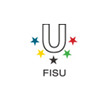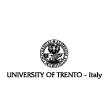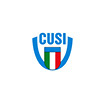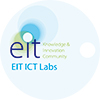On 9 and 10 December 2013, the FISU International Conference on “University Sport: Inspiring Innovation” was held at the Museum of Modern and Contemporary Art (MART) in Rovereto (Trentino, Italy) on the occasion of the XXVI Winter Universiade “Trentino 2013”.
During the conference, the concept that sport - viewed as “all forms of physical activity that contribute to physical fitness, mental well-being and social interaction, such as play, recreation, organized
or competitive sport, and indigenous sports and games”[1] - is a very promising and challenging source of inspiration for better education, innovation and trans-disciplinary scientific and technological
research was investigated in depth.
Many recent documents, scholarly articles and studies clearly show that:
- Sport is a universal language: sport – as a constant striving toward excellence in mind and body – is deeply rooted in human nature and culture, surpasses space and time, is based on transnational and transcultural rules and values. As such, “[p]hysical education and sport form an essential element of lifelong education in the overall education system” [1];
- Sport has educational value: sport helps forging a new attitude (life skills) in youth, based on positive values, fair competition, team spirit, rule-based interaction, goal-driven thinking, a balanced attitude towards defeat and success, resilience, volunteerism;
- Sport has social value: sport is all about participation, community, common values. As such, it is a very powerful instrument for social innovation, which includes transferring positive values and models to young generations and society at large, addressing gender issues, working with disability, advocating against violence, intolerance and racism, encouraging healthy lifestyles; ● Sport has economic value: the sport sector is an employment-intensive growing industry and can contribute to addressing youth unemployment [7]. Moreover, sport is a very important factor in many economic sectors of today’s societies, well beyond what is called “sport industry”, and contributes in a significant way to the global economy.
The Trentino 2013 conference on “University Sport: Inspiring Innovation” drew attention to an additional value of sport in modern societies, namely sport is also a powerful inspiration for scientific and technological research and a driver for innovation.
Sport constantly raises new challenges to any sector of scientific research, is highly trans-disciplinary, is a very demanding test bed for new ideas and results, provides real opportunities for bringing research
outcomes to the market. Research outcomes related to sport can have big societal and economic impact. As such, sport can be a very important vector of research for cultural and social
International S-Mart
Trentino 2013 Declaration on Sport and University for Innovation
We - the representatives of international universities and higher education centres, sport bodies and political institutions, together with the representatives of industry, commerce and innovation hubs - recognize that the concept of sport as an inspiration for scientific and technological research and as a driver for innovation is a great opportunity for growth and development of a knowledge-based economy, for creating new job opportunities, for social inclusion and innovation.
To pursue this concept, we affirm that:
- a new alliance between Sport and University can provide the ideal terrain for creating cultural, social and economic value by fostering innovation through sport;
- this alliance must be complemented by a strong connection with industry, which can offer business orientated problems to be addressed, capacity for industrialization and commerce of new results, resources for marketing new products;
- this alliance can contribute to addressing some of the key global societal and economic challenges of the XXI century and help in offering more developmental opportunities to new generations all over the world.
Being committed to pursue this opportunity and to do everything which is in our power within our respective roles,
we - the representatives of international universities and higher education centres, sport bodies and political institutions, together with the representatives of industry, commerce and innovation hubs,
encourage the creation of an international High-Level Panel of Experts (HLEG) to be established within a reasonable amount of time from the signing of this Declaration. The HLEG, formed by direct invitation to representatives from academia, policy making and funding institutions, sport bodies and industry, should promote the definition of a strategic plan for exploiting the full potential of the alliance between sport, university and industry related to innovation. The strategic plan should include:
- a collection of key facts and data on the dimension of currently existing synergies between research and sport, which can be used to assess the actual impact of sport as a driver for research and innovation;
- International S-Mart Trentino 2013 Declaration on Sport and University for Innovation
- a list of strategic sectors where the alliance between university, sport and industry has higher potential for success by 2020;
- a list of concrete actions which universities can undertake to unleash the potential of sport as inspiration of scientific / technological research and driver for innovative business opportunities;
- guidelines on how to foster research and innovation through sport within and across scientific disciplines and economic sectors, together with incentive mechanisms which can be introduced in funding schemes for promoting sport as a driver for innovation and business ventures;
- guidelines on how universities, sport federations and other partners can start dual career programmes which on the one hand allow student-athletes to reconcile their sport career and their academic studies and to fulfil their professional aspirations in the transition from the sport career to the next professional step and on the other hand can also attract public and private investments for education, research and innovation;
- proposals on how sport can be used to promote projects of social innovation and social inclusion, aiming at using sport as an instrument to promote gender fairness, to improve the quality of life of disabled people, to enhance the integration of minorities and immigrants.
We - the representatives of international universities and higher education centres, sport bodies and political institutions, together with the representatives of industry, commerce and innovation hubs - encourage the organization of an international summit on university and sport for innovation, where to assess the implementation of the principles of this Declaration.
References
[1] Sport for Development and Peace. Towards Achieving the Millennium Development Goals. Report from the United Nations Inter-Agency Task Force on Sport for Development and Peace (2003). See http://www.un.org/wcm/webdav/site/sport/shared/sport/pdfs/Reports/2003_i...
[2] International
Charter of Physical Education and Sport. Adopted by the General Conference at its twentieth session, Paris, 21 November 1978. See http://www.unesco.org/education/educprog/eps/EPSanglais/EVENTS_ANG/inter...
[3] Strategic Orientation
of the Secretary-General 2013 and beyond. Meeting of the OECD Council at Ministerial Level, 29-30 May 2013. See http://www.oecd.org/mcm/C-MIN(2013)1-ENG.pdf
[4] White Paper on Sport. European Commission.
2007. See http://ec.europa.eu/sport/white-paper/the-2007-white-paper-on-sport_en.htm
[5] Study on a possible future sport monitoring function in the EU. Final report. May 2013. See http://ec.europa.eu/sport/library/documents/f-studies/final-rpt-may2013-...
[6] The EU
Education, Youth, Culture and Sport (EYCS) Council recommendations on http://ec.europa.eu/sport/news/documents/hepa_en.pdf
[7] Council conclusions on the contribution of sport to the EU economy, and in particular to addressing youth unemployment and social inclusion. Education, Youth, Culture and Sport Council EDUCATION, YOUTH,
CULTURE and SPORT Council meeting Brussels, 25 - 26 November 2013. See http://ec.europa.eu/sport/news/documents/council-conclusions_en.pdf
[8] D. Dimitrov / C. Helmenstein / A. Kleissner / B. Moser / J. Schindler: Die makroökonomischen Effekte des Sports in Europa, Studie im Auftrag des Bundeskanzleramts, Sektion Sport, Wien, 2006
[9] EU Guidelines on Dual Careers of Athletes. Recommended Policy Actions in Support of Dual Careers in High-Performance Sport. Approved by the EU Expert Group "Education & Training in Sport" at
its meeting in Poznań on 28 September 2012. See http://ec.europa.eu/





